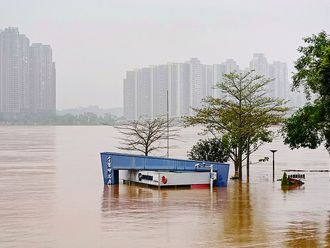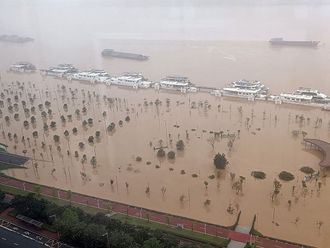Renewed conflict on the Korean peninsula could kill hundreds of thousands of people in the first few days alone even if no nuclear weapons are involved, according to a new report by the Congressional Research Service.
Given population densities on the peninsula, military conflict “could affect upwards of 25 million people on either side of the border, including at least 100,000 US citizens,” according to a 62-page assessment sent to US lawmakers Friday and obtained by Bloomberg News.
The grim report comes after tensions between the US and North Korea peaked over accelerated missile and nuclear tests by Kim Jong Un’s regime, exacerbated by a war of words between Kim and President Donald Trump. Earlier Friday, Defense Secretary Jim Mattis visited the demilitarised zone between North and South Korea, saying the US is continuing to pursue diplomacy as the preferred choice to resolve the crisis.
Yet with the US also saying that all military options are on the table, the CRS report laid out in grim detail the consequences of a conflict. North Korea can rely on hundreds of thousands of artillery rounds within striking distance of Seoul, making it difficult for even a preemptive strike to prevent mass casualties.
Even if North Korea “uses only its conventional munitions, estimates range from between 30,000 and 300,000 dead in the first days of fighting,” the report said, citing North Korea’s ability to fire 10,000 rounds per minute. Moreover, the conflict would quickly spread to involve forces from China, Japan and Russia.
“Such a conflict could also involve a massive mobilisation of US forces onto the Korean Peninsula, and high military casualty rates,” the research service for Congress said. “Complicating matters, should China choose to join the conflict, those casualty rates could grow further, and could potentially lead to military conflict beyond the peninsula.”
Still, the report noted that some analysts say that allowing Kim’s regime to acquire the ability to develop a missile capable of delivering nuclear warheads to the continental US would be of even greater risk than the outbreak of regional war.
Trump is scheduled to visit South Korea as part of a tour through several Asian nations starting next week. The White House hasn’t said whether a visit to the demilitarised zone between North and South Korea will be part of that trip.












